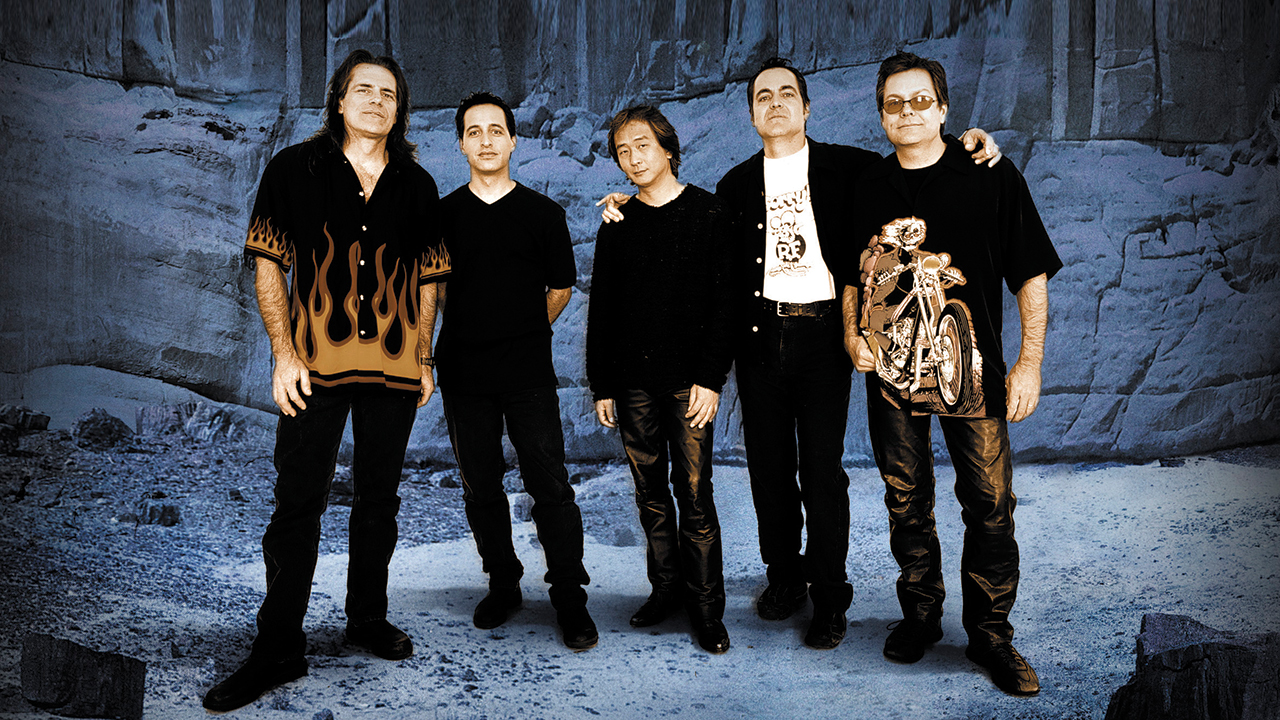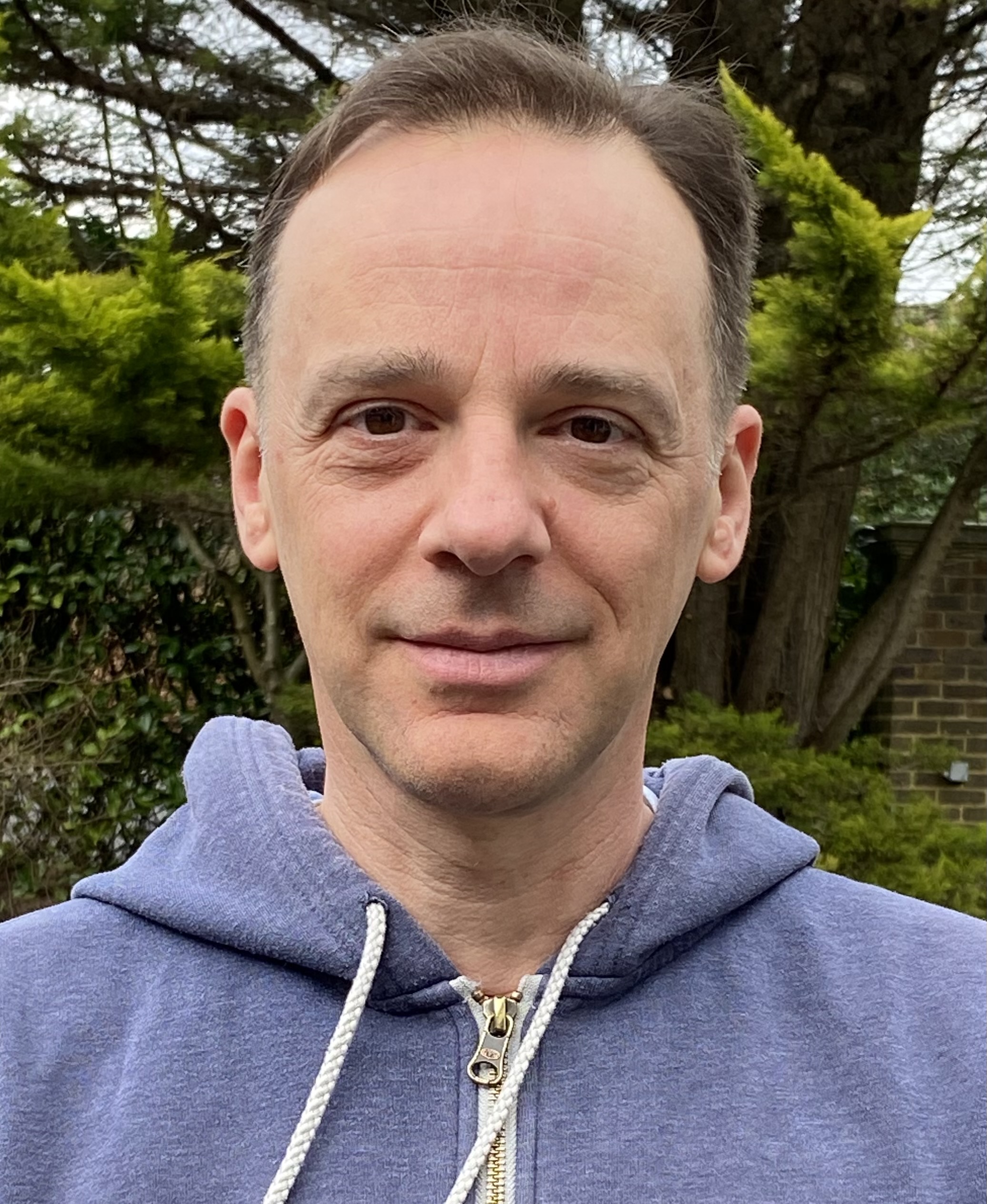Spock’s Beard represented the first commercial success any of the members ever experienced, and for their first seven years it was all under the hand of benign dictator Neal Morse. But as he reacted to 9/11 and knew he had to rewrite what would become 2002 album Snow almost from scratch, he also knew he had no choice but to quit the American prog outfit. He discussed his memories with Prog in 2011.
Back in the early 1990s the progressive rock landscape in the United States was bleak. “There wasn’t any prog that we knew of,” vocalist/keyboardist Neal Morse remembers. Morse had spent years making little headway in the music business. “I never got any songs played; I never got a publishing deal. I was a complete failure,” he states candidly. Ironically, once Morse ceased seeking success, success would find him.
Morse and his guitarist brother Alan initially shied away from forming another band. “It was abhorrent to us because of all our bad band experiences,” Morse says. But in 1992 they instigated Spock’s Beard, recruiting bassist Dave Meros and drummer Nick D’Virgilio. Their gameplan was to prioritise playing progressive rock rather than pursuing commercial success. “We got together for our own enjoyment,” Meros comments. “That was enough of a reason.”
Three years later Spock’s remarkable debut The Light was released, having been recorded for a meagre $3,500. “I guess you would call The Light a vanity record,” Meros chuckles. “The expectations were nobody would like it but that it would be cool for us.” Nevertheless The Light caused a significant stir in the US and internationally. Amazingly, and seemingly against the odds, Spock’s had found an audience.
By 2000, Spock’s had released four further studio albums, toured extensively and were building real momentum. After trying their luck with more commercial songs on their third and fourth albums, 1998’s The Kindness Of Strangers and 1999’s Day For Night, 2000’s V represented a welcome return to much more progressive material.
Morse believes that over the years before Snow the band evolved considerably. “We were taking a lot more time on our albums and had developed as personalities and players. I knew what everyone was capable of and we knew each other personally and musically so much better. That makes a difference when you’re writing.”
What hadn’t changed within Spock’s was Morse’s dominance as the band’s principal creative force. Back in 1996, he’d joked to this writer that the relationship within the band was “a bit like Hitler and Germany”. He laughs at the recollection, before Meros loyally adds, “It was a dictatorship for sure, but it wasn’t like we were struggling underneath him.”
But it was the writing of Snow that would bring Spock’s to an extraordinary crossroads. Before Snow Morse had eschewed recording a concept album, partly as it seemed “too obvious”. “Also to do a concept album is a huge undertaking,” he states. “It’s a lot more work to have a story and make it all fit together. You can’t just write whatever comes into your head.”
Armed with material for Spock’s sixth album, in the summer of 2001 Morse flew from his adopted home state Tennessee to California to start recording. Before that trip, optimism abounded. “There was this excitement around the band at the time of V,” Meros says. “It felt like every step we took was upward. We were really proud of what we had done; it was the best band that any of us had ever been in.”
But on his arrival in LA, Morse was dissatisfied with his material. He then decided that with some re-writing the album would be a concept piece. “I only had an hour of music that was good at that time. I had disc one pretty much written but without the lyrics.”
“Neal wasn’t completely happy and said we should go home and regroup,” Meros recounts. “We thought he would come back with a revised version of what he’d already done, but he rewrote almost the complete thing, which I found amazing. He rewrote a double CD.”
But there was more to the rewriting process than anyone expected. Having postponed recording to allow himself time for re-writing, Morse could have flown home. Fatefully, however, he decided to spend one further night in Los Angeles. The date was September 10, 2001.
The following day, with America reeling from the September 11 terrorist attacks and the Western world looking on in horror and disbelief, Morse found himself stranded in LA with America’s airspace and airports in chaos. “They had a moratorium on returning car rentals to another state without a charge,” he says. “I felt I should take off driving across the country.”
During that drive, the Snow concept – about a mysterious albino psychic with healing powers – came to Morse. “It was a very strange time around 9/11. There was a real end of the world vibe in America and I was driving through miles of desert, listening to Bob Dylan and hearing Congress sing God Bless America on the radio. The character, his name and a lot of things that would happen to him soon became clear to me.”
Subsequent to his epic road trip Morse toiled for months polishing the concept and writing songs. “It was a long arduous process,” he remembers. Once back in LA
for recording, the band encountered numerous logistical difficulties, which came close to sending Morse over the edge. “It was brutal for me. I was an emotional wreck. I would wake up some mornings and not get out of bed. I would curl up in the foetal position because I couldn’t face having to tell the guys what was going to happen.”
Morse was about to drop a bombshell on his colleagues. By the time he came to write Snow, he had become a committed Christian. “You write with your heart and coming out of my heart were things like Open Wide The Flood Gates, Love Beyond Words and Wind At My Back, which are all really prayers.” His first dilemma was whether to channel these songs to make them workable for Spock’s or to record a solo, Christian worship album. While he opted for the former, he soon felt that his position in Spock’s was untenable.
“The Snow album for me is about leaving the band. About nine months before we finished the album I first felt that God wanted me to leave.” He didn’t reveal his plans to his bandmates at the outset of recording, while he struggled to rationalise the situation. “As far as I could see there wasn’t any logical reason. We were at the height of our success. It seemed crazy to be in the music business my whole life, be a complete failure and then have success in my early 40s. And then to leave it and just walk away was totally insane.”
But Morse felt that he had to follow his heart, running the gamut of emotions as he kept his intended departure to himself. “It was like facing a divorce. Some days I was depressed; some days I was angry. The hardest part was my love for the band and what was going to happen to them. I was really worried about them. But the Lord kept telling me, ‘I’ll take care of them, trust me’. ”
As a result, shortly after Snow was finished, Morse broke the news to his stunned bandmates. Meros remembers the meeting as surreal. “Neal wanted a band meeting and dropped the bomb,” he recalls. “Everybody in the band had a different reaction. It was pretty shocking.” While Snow’s lyrics are rich in religious content, Morse believes that, during recording, only his brother Alan suspected his plans to leave the band, taking I Will Go as an overt hint regarding Neal’s thinking. “I don’t think the other guys paid much attention to the words,” says Morse. “They never really questioned me or discussed the lyrics, which was great for me as a writer, to say whatever I wanted.
“I went through nine months of emotional preparation, and I had God. They weren’t prepared; they just had to deal with what I laid on them. I’ve always felt really bad about that. Then they began their grieving process and all responded in different ways. Some were angry, and some on the night that I told them were encouraging, because I was crying and really upset.”
As Morse reiterates, Spock’s was the greatest success that any of the members had experienced. “We’d toughed it out in the trenches together from the beginning. It wasn’t just a band to us, it’s what we were alive for – until I found something else to be alive for. There’s nothing harder than leaving people that you love because God is calling you.”
Meros reveals that the rest of the band had previously been well aware of Morse’s spiritual journey. “We were completely fine with it. His lyrics from the beginning had always been spiritual and I always thought that was great. They were very positive and inspiring. As he got more into the Christian part of it, he managed to get his point across without actually saying ‘Lord’ or ‘Jesus’. We didn’t expect things to end up the way they did though.”
There would be no Snow tour. “I’ve never regretted not touring Snow,” Morse says, “I barely survived making it. It might be the best thing we ever did, but even just talking about it now makes me all emotional.” Indeed Morse has hardly listened to Snow as it was such a painful album to make. Equally he professes never to have had second thoughts about leaving Spock’s. “It’s a walk of faith and you just take the next step. I still don’t have any idea exactly where I’m going, but I know it’s going to be good.”
Meros harbours no resentment regarding Morse’s departure. “Neal needed to make a clean break from his previous life and leaving Spock’s was one of the steps. We all still love Neal. He started this band and by leaving and just handing it to us we all had to step up as musicians and writers. He created the band and then gave it to us. So there’s a lot of gratitude. He did nothing with malice. If I did judge him, it would be positive – he followed his heart. That takes a lot of courage.”

